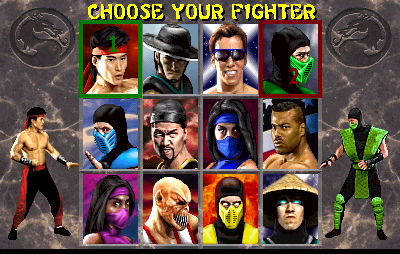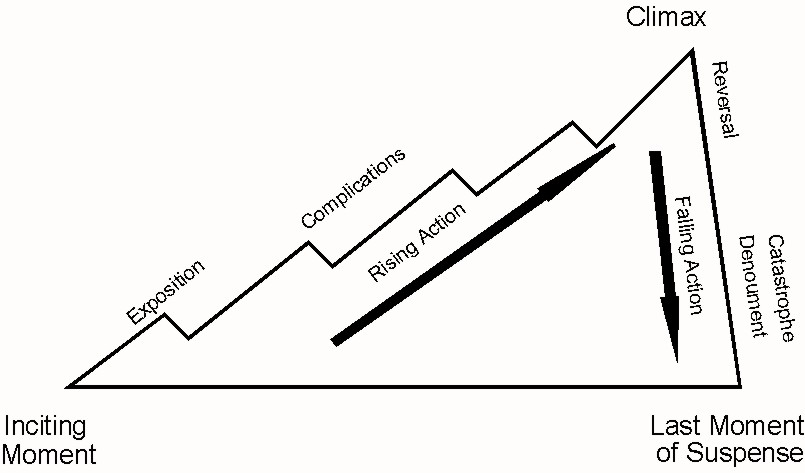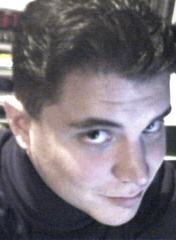 This post is the fifth in a series of ten about my experiences at Clarion West Writers Workshop (Wikipedia) as a member of the 2008 class. I’ll talk about my third week at the workshop, when Cory Doctorow (Wikipedia, Twitter; freely downloadable recent novels Little Brother and Makers) instructed. Here’re Parts 1, 2, 3, and 4 of the series. In Part 4 I discussed writing my story “Glenn of Green Gables” and ended with a cliffhanger: aliens had just broken into our space station hull.
This post is the fifth in a series of ten about my experiences at Clarion West Writers Workshop (Wikipedia) as a member of the 2008 class. I’ll talk about my third week at the workshop, when Cory Doctorow (Wikipedia, Twitter; freely downloadable recent novels Little Brother and Makers) instructed. Here’re Parts 1, 2, 3, and 4 of the series. In Part 4 I discussed writing my story “Glenn of Green Gables” and ended with a cliffhanger: aliens had just broken into our space station hull.

Earthly Seattle, via NASA
As mentioned before, Clarion West is stationed in geosynchronous orbit above Seattle, but at the same time it replicates the Earthly city below. I think this Miévillean metaphysic serves in part to shield Clarionites’ dubious deeds from those who might not understand what happens when writing workshops (rightfully) push people to revise their stories: their fictional stories and moreso their personal identity ones. In the space station, as narratology becomes conscious craft, students confront fictional characters who battle through fictional plots, and confront seventeen other writers, plus a vaunted instructor, each of whom are battling through their personal plots — and everyone winds up using the manuscripts as materiel.
With their laptops students type out art, trails to their selves; the art becomes in the classroom terrain for proxy wars over personal identities — and over the group’s identity, too. Everyone in the building is at once enemy and comrade. Reality shows would pay to sell some of the behavior that bubbles up. Caught in it, students lean on each other for support. That requires privacy; thus the mystery of the workshop’s location. Again: the experience requires privacy. To have four laptops — writers’ trusted weapons — stolen by aliens breaking in … an invasion!
I’m not clear on the actual details of the heist, none of us were, though we scried far and wide for the aliens, and sent many spaceships chasing after. We were all as one laptop-less ragtags, but within forty-eight hours we were high-fiving each other — because to our quick rescue came an advocate of privacy shielded with a sheen of transparency, in other words, that frenetic pirate known as Cory Doctorow.

Cory, via quinnums
Info he finds useful he boomerangs, and so when he learned aliens invaded just prior to his arrival, he donated his instructor’s pay toward laptop replacements and posted the following on Boing Boing:
Clarion West, the famed Seattle science fiction workshop, has suffered a terrible theft: four student laptops were stolen yesterday. Clarion West (like Clarion in San Diego) is a grueling, six-week intensive boot-camp for science fiction writers. Students often quit their jobs and save for years to attend and it goes without saying that they can hardly absorb the cost of a new laptop in the middle of the workshop.
I’m flying to Seattle tomorrow to teach the third week of the workshop and I’m keenly aware of the chaos this will have wrought on the students. The workshop’s organizers are soliciting donations — either hardware or cash — to get the students up and running. The workshop is incorporated as a 501(c)3 charity, so any donations are tax deductible.
I am donating all of my teaching fee to the fund. I hope that some of you will be moved to chip in whatever you can afford, to help fund the instruction of the next generation of great science fiction writers.
Clarion West received enough donations to replace all stolen laptops. I wonder which literary fiction communities could boast the same (I’m actually asking!).
That week, in addition to the invasion, I was shaken “as if with ague,” which is the writerly cliche for describing someone tremoring.
via House of Sims
Except there was no as-if subjunctive for me: all week I had a constant fever registering over a hundred, and I had a cough, too. I think the illness was brought on by too much exercise (I ran in the mornings). Thankfully the administrators (Neile Graham and Les Howle) gave me nothing but the kindest help. My memories of Cory’s week, though, remain hazy.
Still I can report some of Cory’s instruction. An advocate of privacy, I said; Cory, who’s associated with the Electronic Frontier Foundation (Twitter), has a number of controversial views not just on privacy but also on piracy, file-sharing, DRM and media industries, more. Some of his afternoon lectures covered his digital ideology. I remember him as a fast-talking firebrand.
All the same he had a sensitivity about him that I don’t see many mention. For example, he was the only instructor who in the one-on-one sessions made a point of asking how we were doing emotionally, aside from the writing portion of the workshop; that thoughtfulness probably was in part due to his having attended Clarion East as a student in 1992. He definitely understood how stressful and transforming the entire experience is, how it requires the privacy and the care that can come with a good group’s special, monastic space (station).
Oh, Freytag! (stolen? pirated? from Kathleen King)
In one lecture Cory gave us a seven-point formula for plotting: create 1) a character 2) in a place 3) with a problem 4) who intelligently overcomes obstacles, 5) and as things get worse, 6) conflict by necessity comes to a climax, 7) after which there’s a denoument.
I am a sick man…. I am a spiteful man. I am an unattractive man. I believe my liver is diseased. However, I know nothing at all about my disease, and do not know for certain what ails me. I don’t consult a doctor for it, and never have, though I have a respect for medicine and doctors. — Dostoevsky’s Notes from Underground
If I’m not mistaken, Cory portrayed this formula as universal, which with if so I take issue. The formula doesn’t account for certain types of good stories that go under-represented in science fiction & fantasy: stories with unreliable narrators, trapped protagonists who don’t escape into heroic stature — they’re the kind of characters who remind us, as we watch their ironies, of just how much sway our environment has over our lives, and how unreliable information is, no matter how much we try to route around those bugs/features of reality.
As I mentioned in Part 4, most (all?) my classmates in the space station, along with our Week 2 instructor (Mary Rosenblum), totally loved my Week 2 story (“Glenn of Green Gables“); Cory was among the readers who didn’t. Years later I can count the non-fans on one baffled hand. Cory argued Glenn isn’t like-able since he doesn’t solve his problems intelligently. My rejoinder, however unnecessary it is now (people are entitled to their opinions!), is the one a fellow Clarionite suggested: Glenn is an emotionally intelligent problem-solver because he bravely sticks to his lonely love for ol’ Anne Shirley despite increasingly sinking circumstances…
Maybe I seem bitter, and for a time I did feel a bit (byte?) uselessly resentful. But that’s not the point, not me; the point is to tell you (especially future Clarion students) what I experienced. So: there were three male instructors my year, three female. My father is and has been, uh, conspiciously absent from my life, and so the less mature 2008 version of me unconsciously scrutinized Paul Park, Cory, and Chuck Palahniuk in a way he didn’t the three other instructors (Mary, Connie Willis, Sheree R. Thomas). I regarded the men’s instruction as having a sort of paternal absolutism to it.
Now that I’m more of an “active protagonist” in my “real” life (thanks in no small part to Clarion West and Seattle), I’ve intentionally challenged myself to write short stories in different and also more traditional ways, and for that, Cory’s obstacle-tackling pointers have proven handy.
One application: while plotting with point 5 — “as things get worse” — I can ask myself, not “what happens next?” but rather “what would raise the stakes?”
But mostly I just keep piracy and capering as tesserae in my own aesthetic.
You want more? Here’s a list of Cory’s excellent fiction-writing advice:
- If you don’t like your story, you get stuck more frequently. If you’re stuck, ask yourself what you need in the story to make yourself like it.
- Use a feed reader and consider staying on top of interesting things (including current events) part of your writing job. But be willing to “mark all as read” when you get behind; don’t be perfectionistic about it, or you’ll never keep up with anything.
- If you’re really stuck, changing projects can be a good strategy.
- Write down little bits of things that interest you, and have a good storage system.
- Get away from any ceremonial ritual for writing. You will become dependent on the ritual.
- Freewriting about whatever is blocking you works well. The shortest path between thought A and thought B, according to some science article or other, is writing it down.
- Subjunctive sentence constructions, dreams sequences, telephone conversations, &tc. generally don’t have as much power as showing situations actually happening to characters face-to-face.
- Time management: use Getting Things Done.
- When you’re stuck, look back at what you wrote earlier. You’ll often discover or remember stuff you were thinking earlier that you can use to go forward.
- Use descriptive filenames if guidelines for electronic submissions ask for attachments.
- The central conceit of a story sometimes doesn’t even show up until a story has gone through multiple drafts. Be willing to revise extensively.
- You stop having writer’s block when writing becomes your job.
- The main thing is believing in yourself.








 Twitter:
Twitter:
1 comment so far ↓
Hi Douglas!
I always love your recaps. I want to read them all, but I get the slow pace….you seem to be thinking through the personal impact of the workshop as you go. Also, your notes and observations are meticulous without getting into overkill. I especially liked how well you captured the fear of the alien attack and the resultant bonding.
One of the things I remember most from Cory’s week was his emphasis on fitness…I don’t think you got to go on many (any?) of the walks or the yoga sessions since you were sick (I never made it to those….too early!!) But I did think it was nice he was willing to take on the challenge of getting us out of the hou…..space station….and out into the…um….space? :) He also mentioned that he doesn’t think writers should rely on rituals like coffee drinking and smoking either. The coffee thing did not sink in for me, but I do feel more conscious of whether I can write without coffee and when in my day I feel awake and ready to write.
Thanks again for the recaps. I’m so glad you were a part of my CW class and it’s nice now that it’s not as recent to hear your take on both the writing and the emotional aspect of everything.
Leave a Comment